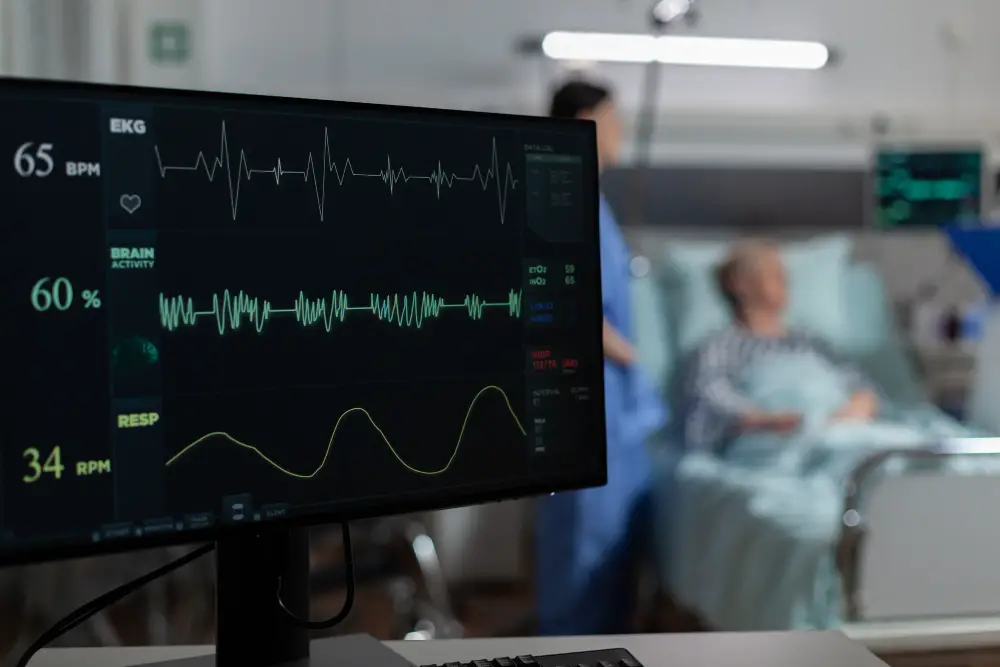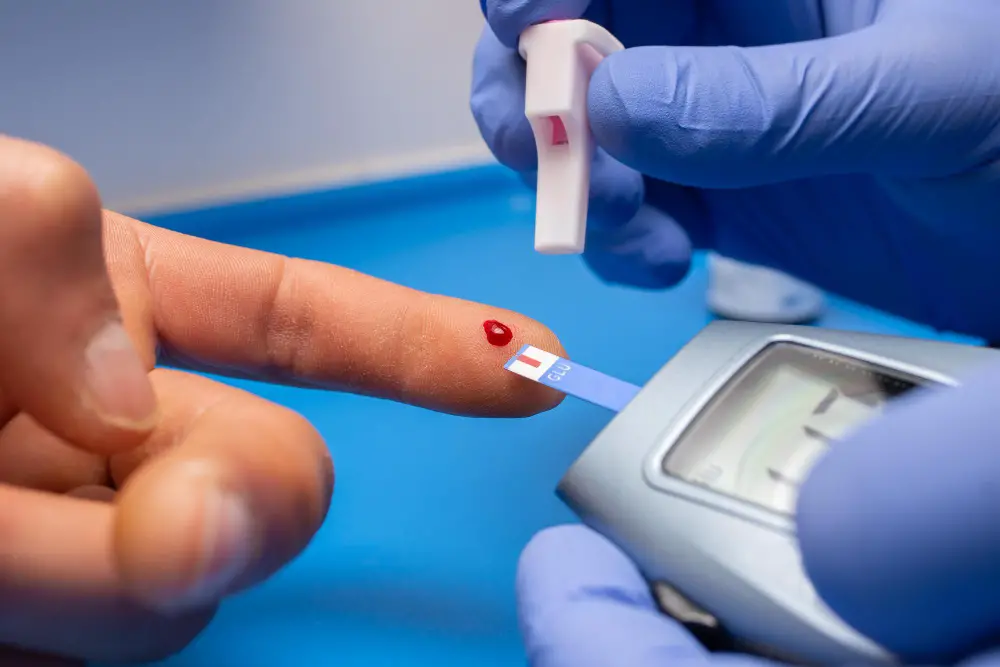
Can You Have Heart Disease With A Normal EKG
-
- Dr. Junaid Arshad
- March 7, 2023
- 0 comments
Table of Contents
Can You Have Heart Disease With A Normal ECG
Yes, a person can have significant heart disease and still have a normal EKG/ECG.
Heart disease is a common health condition that affects millions of people worldwide.
It is a term used to describe a range of conditions that affect the heart, including coronary artery disease, arrhythmias, heart valve problems, and heart failure.
The diagnosis of heart disease typically involves a range of tests and procedures, including an electrocardiogram (ECG), which is a non-invasive test that measures the electrical activity of the heart.
However, despite being a widely used and valuable diagnostic tool, ECG results may not always detect heart disease. In this article, we explore whether it is possible to have heart disease with a normal ECG.
What is an ECG?
An ECG is a test that records the electrical activity of the heart.
It is a simple and non-invasive test that involves attaching electrodes to the chest, arms, and legs.
The electrodes detect and record the electrical impulses generated by the heart as it beats.
The ECG machine then produces a graph that shows the electrical activity of the heart over time.
What can a normal ECG indicate?
A normal ECG result indicates that the heart is functioning normally, and there are no signs of any underlying heart problems.
A normal ECG does not necessarily mean that the individual is entirely free of heart disease or that they will never develop it.
It is possible to have underlying heart disease that has not yet produced any noticeable changes in the electrical activity of the heart.
Why can a normal ECG be misleading?
There are several reasons why a normal ECG may not accurately reflect the presence of heart disease. Some of these reasons include the following:
The timing of the ECG:
An ECG is a snapshot in time, and it can only detect changes in the electrical activity of the heart that is occurring at that moment. If the person has an irregular heartbeat, the ECG may not detect it if the irregularity is not present at the time of the test.
Limited information:
An ECG only provides information about the electrical activity of the heart. It does not give information about the structure or function of the heart. Therefore, a normal ECG may not detect structural abnormalities or heart valve problems.
False negatives:
In some cases, the ECG may miss signs of heart disease, even if it is present. This is known as a false-negative result. False-negative results can occur if the individual has early-stage heart disease or if the changes in the electrical activity of the heart are not significant enough to be detected by the ECG.
What are the other tests for diagnosing heart disease?
If a doctor suspects that a person has heart disease despite a normal ECG, they may recommend additional tests to confirm the diagnosis. These tests may include:
Echocardiogram:
An echocardiogram is an ultrasound scan of the heart that provides information about the structure and function of the heart. It is entirely possible that your ECG and echo both are normal and still you have significant underlying heart disease. Information about echocardiogram and heart disease are explained in detail in a separate topic. Click here
Cardiac stress test:
A cardiac stress test involves exercising on a treadmill or stationary bike while the heart is monitored to evaluate how well it performs under stress.
Cardiac catheterization:
Cardiac catheterization is an invasive procedure that involves inserting a catheter into a blood vessel and guiding it to the heart to take measurements and obtain images of the heart and its blood vessels.
CT scan or MRI:
CT scan or MRI is used to obtain detailed images of the heart and its blood vessels.
What Research has to Say about the accuracy of ECG?
Given below are the details of research published in the American Heart Journal.
The study aimed to determine the accuracy of the 12-lead scalar electrocardiogram (ECG) test in diagnosing acute transmural myocardial infarction (MI) in patients who died while in the hospital for treatment of ischemic chest pain.
The researchers examined 25 patients who had died while in the hospital, and detailed autopsy studies revealed myocardial necrosis in 17 of them.[1]
The researchers found that the ECG test was able to accurately diagnose MI in 11 out of 25 patients (44%) with myocardial necrosis.
This means that the ECG was unable to detect MI in 13 of the 25 patients (56%) with myocardial necrosis. Additionally, the ECG was only able to diagnose 4 out of the 17 patients (24%) with infarction when they first arrived at the hospital.
The study found that the creatine kinase (CK) and CK-MB tests were more reliable in diagnosing MI in these patients than the ECG.
These tests agreed with the pathologic findings in 22 out of the 25 patients (88%), meaning that they were able to accurately detect the presence or absence of MI in most cases.
However, the CK and CK-MB tests were falsely negative in one patient and falsely positive in two patients. This means that the tests did not accurately detect the presence or absence of MI in these three patients.
The researchers also found that the ECG test was frequently unhelpful in diagnosing MI in some cases.
In seven out of the 25 patients, the ECG was unhelpful due to a left bundle branch block or paced rhythm. These are heart conditions that can interfere with the interpretation of the ECG test.
However, when the ECG was not affected by these depolarization abnormalities, it was useful in establishing the correct diagnosis of MI.
Overall, the study highlights the limitations of using the ECG test as a standalone diagnostic tool for detecting acute transmural myocardial infarction.
Other diagnostic tests, such as the CK and CK-MB tests, may be more reliable in diagnosing this condition.
In current times highly sensitive cardiac troponins are widely used and have better accuracy for the diagnosis of a heart attack.
It is important to note that this study was conducted in a specific population of patients who died while in the hospital for treatment of ischemic chest pain.
The results may not be generalizable to other patient populations.
Additionally, the study was conducted in 1983, and diagnostic tools and techniques have improved since then.
In conclusion, the study found that the 12-lead ECG test may not be sufficient for diagnosing acute transmural myocardial infarction in all cases. Other diagnostic tests, such as the CK and CK-MB tests, may be more reliable in detecting this condition. It is important to use multiple diagnostic tests and to consider the patient’s clinical presentation when diagnosing heart disease.
References
- McQueen MJ, Holder D, El-Maraghi NR. Assessment of the accuracy of serial electrocardiograms in the diagnosis of myocardial infarction. Am Heart J. 1983 Feb;105(2):258-61. doi: 10.1016/0002-8703(83)90524-0. PMID: 6823807.




